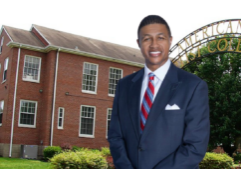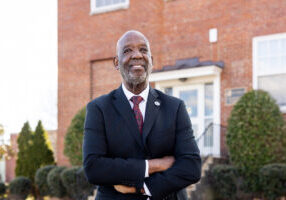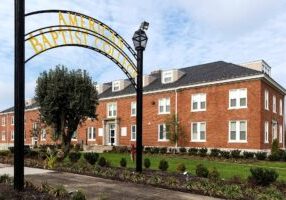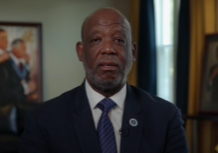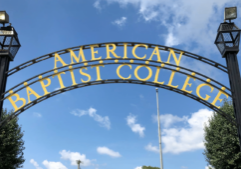The existential crises of the past decade — polarizing electoral politics, the January 6th attempted insurrection, pandemic deaths, lasting health consequences, women’s fight for reproductive rights, destructive climate changes, Afrophobia violence, and a mental health crisis intersecting a gun violence epidemic — are overwhelming our national psyche. Fear reigns in a culture war of turf battles for power and supremacy. Recognizable on all fronts of incivility, communities in the social paranoia of a culture war are trapping innocent children, families, and communities in a dangerous, gun death-dealing epidemic. This epidemic is part and parcel a production of a culture war, religiously and politically, fueled by misleading nationalistic definitions of reality based on “myths and lies” of “Make America Great Again” exceptionalism.
The epidemic reveals more profoundly inescapable realities which demand a new vision of democracy and a commitment to justice and love beyond threats of losing white racial privilege. Unfortunately, today’s justice is severely entangled in a toxic power struggle, a vicious culture war weaponizing fear, politics, and religion. Combining a psychotic crisis with the cruelty and social brokenness of a paranoid public, and the proliferation of fearful rhetoric leading to increasing gun purchases, it’s easy to see why the erratic triggers of gun violence are escalating.
On the cliff of existential despair to the ruin of public trust, we are searching for a moral response. What is the public role of religion and politics when the brokenness of public consciousness lives in fear? Transforming a culture of fear requires a moral “social contract” where equity, justice, and love build community, compassion, and solidarity. A way forward is encouraging the passionate energies of the nation’s young people to redirect the logic of culture wars toward building alternative democratic possibilities.
In the hostile days of racial segregation and violence, religious mystic Howard Thurman wrote about the corrosive force of fear that leads to hate. Fear, Thurman wrote, activates and moves us into a reactive mode of functioning that often overrides rationale to protect the survival of an organism. It is a powerful emotional and biological impulse that can be manipulated to maintain power, scuttling the opportunity to consider empirical facts and solutions. A culture of fear is easy to stir up in today’s world. The outcome is an increase in the sale of security systems and guns and a hyper-aware state of any threats. It destroys community as we come to fear one another rather than cultivate trust, connection, and a sense of individual identity critical to community well-being.
Restoring the cultural power to the nationalistic “myth of Christian America” is recycling and fueling age-old forms of racism, sexism, and xenophobic fears. An intolerant, authoritarian use of power against the flourishing of a rich cultural plurality is the greatest threat to democracy in our fraught contemporary moment of a culture war.
Sadly, what’s happening among the Tennessee legislature is a culture war driven by fear. The state’s rich diversity and relational and communal qualities lay on partisan altars of biases, hatred, and conservative ideologies of religion and political nationalism. Americans have come a long way, confronting the dominant fears of history – racial phobias, antisemitism, homophobia, genderism, and xenophobic hatred. The energies of these fears are resurfacing today with determined authoritarianism. Why? Many are drinking the mixture of an old poisonous cocktail of white supremacy fear, cultural “ism,” and a dystrophia of power against acceptance of our country’s growing wealth of human differences.
In the shadow of the recent killings in Nashville, Kentucky, Alabama, and the shooting of a black teenager in Kansas City who rang the doorbell of a wrong address, the shooting of cheerleaders mistakenly opening the wrong car door in a grocery store parking lot, and the killing of a young female whose only mistake was driving up a wrong driveway, we see intertwined and tragic episodes of culture war, the epidemic of fear, and gun violence.
What we are hearing through the voices and seeing in the protests of Nashville’s teens and young people across the country is their resistance to a culture of fear. They demand a new vision for developing the best policy practices of justice for healing the heart of our democracy. They will not let a culture of fear silence their voices for justice, the voices of the poor, black, white, brown, LBGQT, and immigrant communities. They resist having political authoritarianism dictate their education and what they learn, or defaulting their aspirations to the mentality of a white supremacy understanding of democracy and morality. They know that a violent gun culture does not discriminate. Our response to hatred requires moral consistency to dash its cruelty, violence, and ugly evil.
A recent national survey indicates that few people are unaffected by the epidemic of gun violence. But gun violence is a component of a deeper culture war, a social conglomerate of conservative religious and political nationalism that fears outsiders encroaching on privileged positions of power. Its energy comes from deep-seated cultural fears in the forms of religion and political rhetoric dominating the news media airwaves. The Dominion and Fox News out-of-court settlement is the iceberg tip of this culture war of fear. Profits over people and power over principle have become the daily cultural diet feeding the American psyche. Thus, we have created a culture of fear that diminishes creative alternatives for advancing a “social contract” of justice and love.
When a culture of fear becomes systemic, people must work to replace it with new moral language and the politics of love for the sake of the common good. You cannot claim to love children, families, and neighborhoods while supporting or accepting systems that crush, exploit, and traumatize them. Liberating a culture from the psychological ill effects of fear is a task not only for the public role of religion and politics, but is the responsibility of every citizen. We must remember history has shown us that the collective power of the human spirit is not easily defeated.
We must choose the politics of love and justice over conditions of fear. The nation’s young people refuse to accept the passing on of intergenerational trauma or the recycling of the social temperament of a violent gun culture. They will not be silent until there is an end to unchecked purchases of guns and assault weapons by anyone, regardless of a criminal background and a mental health assessment.
If the violent gun epidemic has taught us anything, it is that action for change directed only against the external condition of violence is not enough. Creating a culture and philosophy of nonviolence requires education, training, and an ethical revolution of values. The mental health crises and toxic conditions of racism, sexism, and homophobia require us to face our fears. During the Tennessee “Moral Monday” event on the State Legislative Plaza, Bishop William Barber stated that “sometimes death intensifies our will to live.” We are in such an intense moment of choice — the courage to create politics worthy of the human spirit, the will to live in safety and community flourishing for all, or see our democracy come to ruin in the moral chaos of culture wars, fear, and gun violence. I hope Tennesseans will unite for a “Justice Summit for Democracy” to cultivate a healthy understanding of community flourishing over fear.
Forrest Harris, President of Nashville’s Historic American Baptist College


